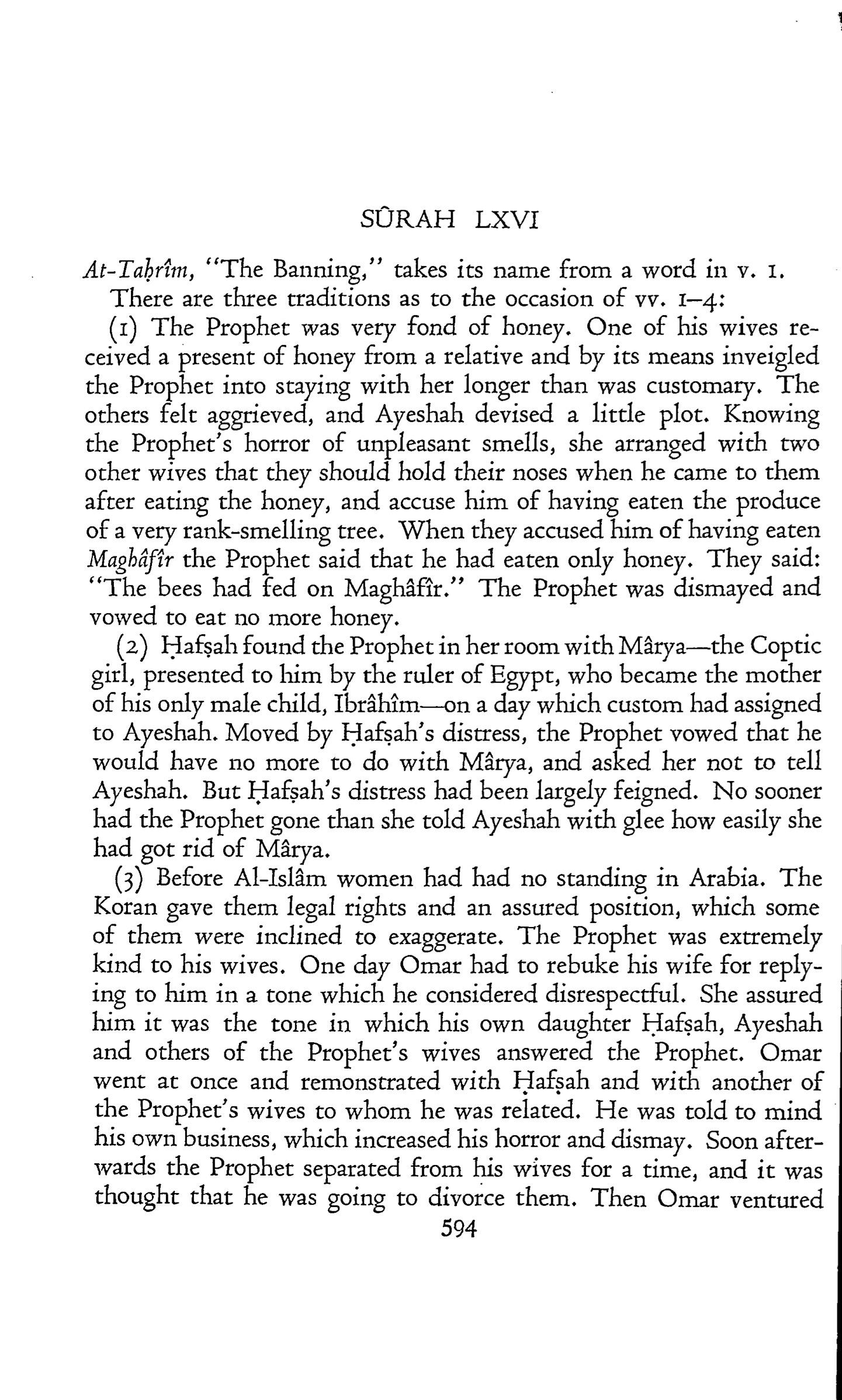Marmaduke Pickthall, The Meaning of The Glorious Koran. An Explanatory Translation (1930)
SÛRAH LXVI
At-Taḥrîm, “The Banning,” takes its name from a word in v. 1. There are three traditions as to the occasion of vv. 1–4:
(1) The Prophet was very fond of honey. One of his wives received a present of honey from a relative and by its means inveigled the Prophet into staying with her longer than was customary. The others felt aggrieved, and Ayeshah devised a little plot. Knowing the Prophet’s horror of unpleasant smells, she arranged with two other wives that they should hold their noses when he came to them after eating the honey, and accuse him of having eaten the produce of a very rank-smelling tree. When they accused him of having eaten Maghâfîr the Prophet said that he had eaten only honey. They said: "The bees had fed on Maghâfîr.” The Prophet was dismayed and vowed to eat no more honey.
(2) Ḥafsah found the Prophet in her room with Mârya — the Coptic girl, presented to him by the ruler of Egypt, who became the mother of his only male child, Ibrâhîm — on a day which custom had assigned to Ayeshah. Moved by Ḥafsah’s distress, the Prophet vowed that he would have no more to do with Mârya, and asked her not to tell Ayeshah. But Hafsah’s distress had been largely feigned. No sooner had the Prophet gone than she told Ayeshah with glee how easily she had got rid of Mârya.
(3) Before Al-Islâm women had had no standing in Arabia. The Koran gave them legal rights and an assured position, which some of them were inclined to exaggerate. The Prophet was extremely kind to his wives. One day Omar had to rebuke his wife for replying to him in a tone which he considered disrespectful. She assured him it was the tone in which his own daughter Ḥafsah, Ayeshah and others of the Prophet’s wives answered the Prophet. Omar went at once and remonstrated with Hafsah and with another of the Prophet’s wives to whom he was related. He was told to mind his own business, which increased his horror and dismay. Soon afterwards the Prophet separated from his wives for a time, and it was thought that he was going to divorce them. Then Omar ventured
